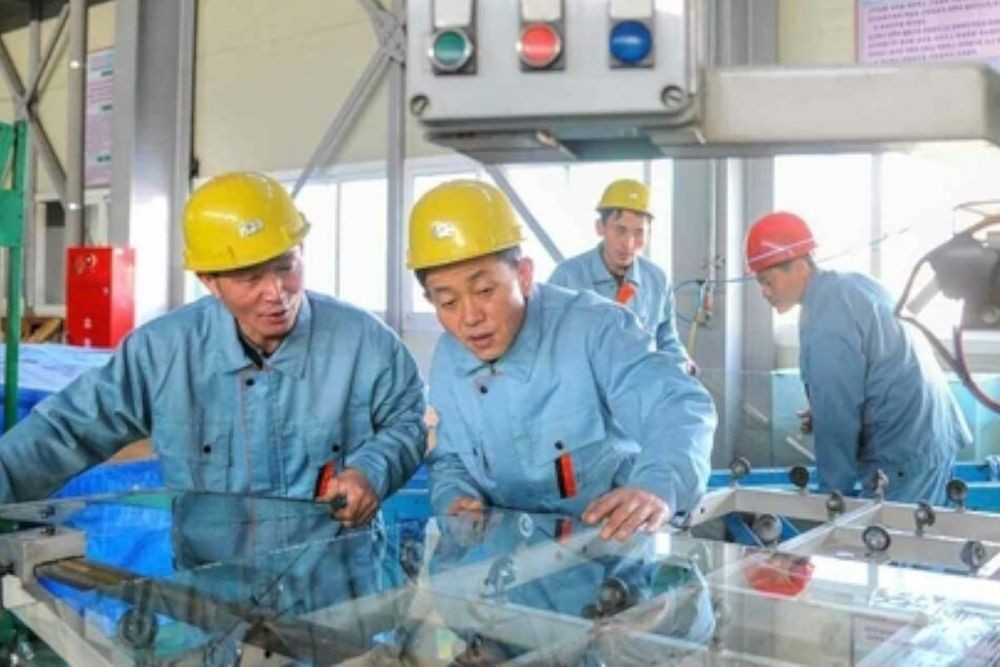Seafood imported from China into Korea, processed by North Korean residents
Unwittingly, consumers are earning foreign currency for North Korea
Testimonies on the human rights oppression situation of North Korean workers in Chinese factories

On the 7th, the Washington DC-based non-profit organization Outlaw Ocean Project announced that it had analyzed Chinese company’s trade data, export and import codes, and product packaging. They discovered that a minimum of three out of six Chinese seafood processing companies, which were confirmed to employ North Korean workers, exported about 924,000 pounds to South Korea from 2020 to 2022.
The seafood produced in this way was distributed across South Korea after departing from Dalian Port, which is geographically close to North Korea in China, and arriving at Busan Port. The organization revealed that at least 400 North Korean workers work in these three companies.
This is a violation of North Korea’s sanctions, which prohibits the employment of North Korean workers in other countries conducted by the UN Security Council, to prevent the foreign currency earned from North Korean labor from being used for nuclear weapons and missile development.
Because Chinese seafood processed through the hands of North Korean residents is being distributed in various markets in Korea, Korean consumers unwittingly support the funds of the North Korean Kim Jong Un regime.

Next, the Outlaw Ocean Project visited several factories in Donggang, Dandong City, and Liaoning Province, now known as China’s seafood processing center. After interviewing about 20 North Korean workers, they found that at least 15 Chinese companies in various industries, including seafood, employ over 1,000 North Korean workers.
Experts emphasized that this is the first time a non-profit organization has revealed the supply chain structure with specific numeric data showing that products produced by North Korean workers under Chinese capital are exported and distributed in South Korea.
The Outlaw Ocean Project explained, “The approximate 924,000 pounds we confirmed is a tiny portion of the total amount exported from Chinese companies to Korea.” The results of the organization’s investigation confirmed that Chinese seafood companies exported various products, including clams directly processed by North Korean workers, to squid, pollack, and freshwater snails.
Products of Chinese seafood processed by the North Korean labor brought in by Korean companies are widely distributed not only in large marts in the top tier of the industry but also in online shopping malls, surprising the officials.
The clam product exported to Korea by Dandong Taihua Foodstuff, a representative company selling products processed by North Korean workers, boasted a high satisfaction level, recording 4.8 out of 5 points on the mart’s homepage. The representative evaluation of over 3,000 product reviews was “It is convenient because the shell is removed and you can eat the flesh right away,” and this is because the North Korean workers removed the shell under the Chinese capital.

A Korean import company that imports various seafood, from shellfish to fish, from another seafood sales company, Dandong Taifeng Food, has continued marketing. On its homepage, it advertises that the product is successfully sold at the instant seafood cooking sales counter of a large mart.
In addition, Dandong Yuanyi, a large Chinese company that processes more than approximately 22 million pounds of raw squid annually, has been confirmed to have been exporting various squid-processed products to South Korea for a long time.
Chinese seafood is imported after going through the legal procedures of South Korean authorities, so it is not easy for distributors and consumers to check the place of production and realize that it is a product produced by North Korean forced labor.
Moreover, South Korea has never enacted a separate law to prohibit the import of goods made by North Korean labor. It is managed by imposing restrictions based on individual judgments following North Korea’s sanctions conducted by the UN Security Council.
Experts mentioned the fact that the term of the expert panel under the North Korean Sanctions Committee, which has professionally monitored North Korea’s sanction violation activities from the UN Security Council, was recently rejected due to Russia’s veto, and raised concerns that it may become more challenging to monitor North Korea’s international sanction violation activities in detail.
A government source argued, “The Korean government needs to directly understand the reality of forced labor of North Korean workers working in Chinese companies and judge the need for sanctions and enact related laws.”

When the actual situation of oppressing the human rights of North Korean workers working in Chinese factories was revealed, a big wave occurred in the United States, where the non-profit organization is located.
The anonymous North Korean workers who were interviewed or met by the Outlaw Ocean Project testified that they were beaten almost every day. In severe cases, they were sexually abused.
An anonymous North Korean woman working at Dalian Haiqing Food, known to have exported approximately 608,000 pounds of frozen pollack innards to the Korean market from the end of 2019 to May 2022, testified to the problematic situation of North Korean workers’ rights in an interview with the organization, saying, “I was threatened, if I get caught while running away, I would be killed without a trace by China or North Korea.”
Another female worker said, “The saddest and most horrifying moment was when I was forced to have sex at a drinking party.” North Korean workers exist outside the framework of the law, working for 18 hours a day under constant surveillance by security personnel employed by Chinese companies without privacy. The organization even revealed that they run a forced march daily, taking only one day off a month.










Most Commented